Final push for votes as German frontrunner vows to lead in Europe Paul Kirby
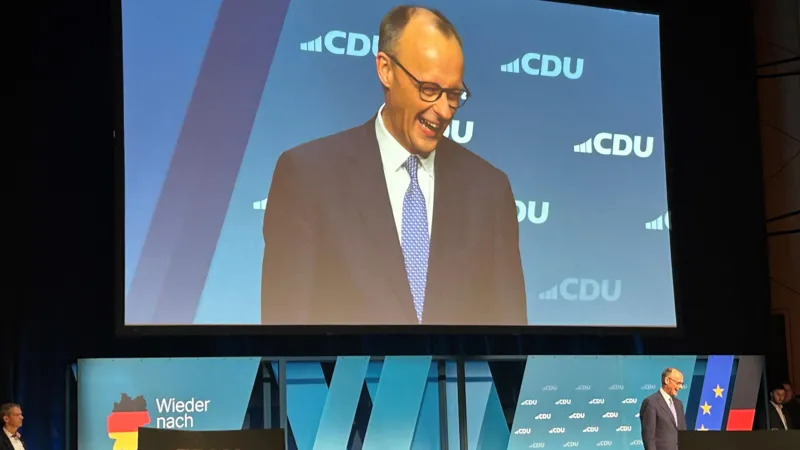
Final push for votes as German frontrunner vows to lead in Europe The crucial aspect of Sunday’s election, not only for their nation but also for Europe at large, will be reflected in the last-minute battle for votes between Germany’s opposing party leaders.
Friedrich Merz, the front-runner for the Conservative Party, assured supporters that Germany will assume responsibility in Europe under his leadership and that the far-right Alternative for Germany (AfD) would once again be sent to the political periphery.
While his opponents will make a final appeal in a TV “speed-dating” program with voters, he will conclude the campaign of his Christian Democrat party with a rally in Munich.
The fall of the previous government has paralyzed German politics for months.
Now, expectations are growing across Europe that this vote would provide some clarity to the EU’s largest democracy and economy, which has battled to recover from a prolonged slump.
Nothing will change overnight. No party can govern without forging a coalition, which will take several weeks.
Reviving the economy has been one of the campaign’s two main concerns; the other has been migration and security, which have been forced upon German politicians by a succession of violent assaults since May 2024.
Mannheim, Solingen, Magdeburg, Aschaffenburg, and Munich have all suffered serious attacks. A Spanish visitor was stabbed at the Holocaust monument in central Berlin on Friday night, but his injuries are not life-threatening.
All of the accused assailants
All of the accused assailants were immigrants, and the AfD, led by Alice Weidel, has risen to almost 20% in surveys with its nationalist, anti-immigrant stance.
She has appealed to younger voters on social media and leads the contest on TikTok, with 870,000 followers. She has also received backing from billionaire Elon Musk and US Vice President JD Vance, who has been accused of interfering in the German elections.
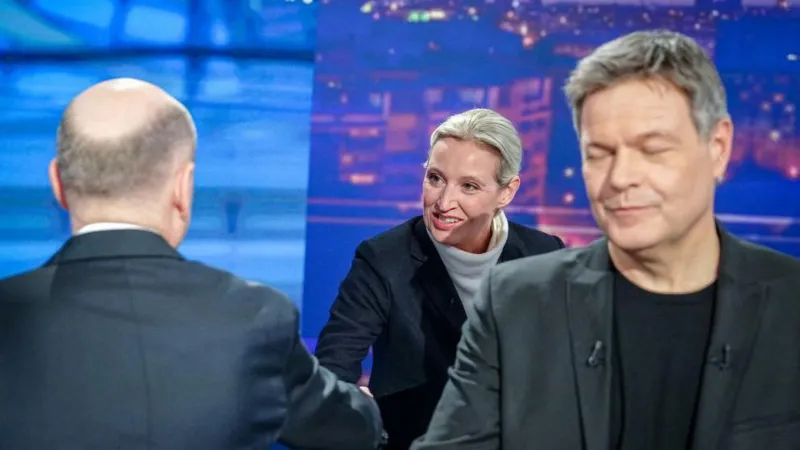
The AfD advocates safeguarding Germany’s borders and deporting unlawful migrants who have committed crimes. However, she uses the term “remigration,” which has also been associated to mass deportations.
In Solingen, where a Syrian was accused of stabbing three people to death in August, hundreds gathered on Friday night to protest the emergence of the extreme right.
“We have a lot of friends who grew up in Germany but whose parents did not,” said Natalie, 35. “We don’t want anybody to kick them out and we don’t want our borders closed.”
A guy named Jochen put up a placard that said, “Never Again is Now!”
There was a heavy police presence at the rally, and Friday night’s stabbing in Berlin, which police said was motivated by antisemitism, has raised security concerns.
A police union representative has warned of the possibility of assaults designed to destabilise democracy.
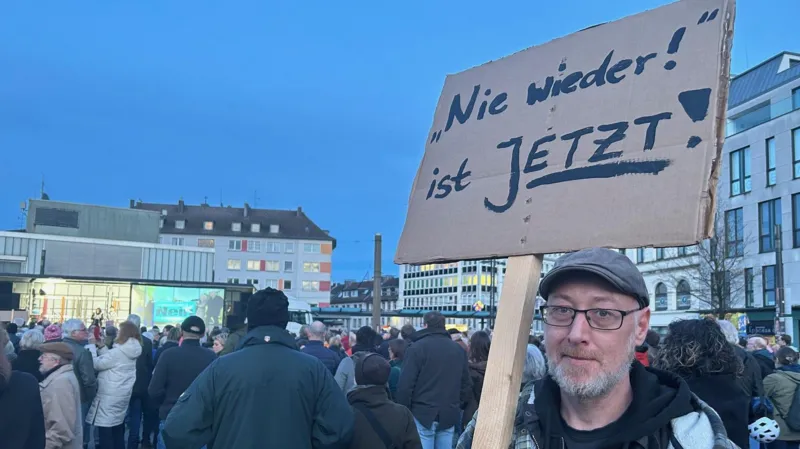
All of the mainstream parties have said
All of the mainstream parties have said they would not cooperate with the AfD in government, but if it polls over 20%, it might get 150 seats in the 630-seat parliament.
Merz’s most likely coalition partner is Chancellor Olaf Scholz’s Social Democrats, but without Scholz himself. As the last day of campaigning began, his centre-left SPD sent the message that every vote matters, and that if Germans wanted a strong government, they needed a strong SPD.
The Social Democrats are polling third, but Scholz is counting on an estimated one in every five undecided votes to make a significant difference.
Friedrich Merz stood on stage this week in front of 1,200 fans in the tech-hub city of Darmstadt near Frankfurt, looking calm and confident. His message, however, was strong when he shifted his attention to Donald Trump’s administration.
He spoke of extraordinary times and a “tectonic shift in the world’s centres of power” with one hand in his pocket and the other gripping the microphone.
“The political order is now disintegrating. What we’ve become accustomed to over decades is breaking down.” He wasn’t even sure if the United States would join Germany in marking the 70th anniversary of its NATO membership this summer.
He chastised the outgoing government for failing to play a leading role on the global scene.
“The German government and chancellor must resume their leadership role in Europe. If elected, I intend to devote a large portion of my time to maintaining the European Union together.
Learn more about the German elections:
Who’s who and what you need to know
Merz: Risk-taker who flirted with far right
Katya Adler: Far right looks for breakthrough as Germany falters
Tensions laid bare as Germans worry about immigration
Germans have had practically nightly opportunity to see their political leaders discuss major topics on television, and Alice Weidel has been there in the midst of it, sharing the platform with Merz and Scholz.
In the run-up to the vote, she met Vice-President JD Vance, who chastised German politicians for erecting a “firewall” against the extreme right and rejecting “the will of the voters”.
That firewall, known as a brandmauer in German, has remained solid since the end of the war, but Merz was accused of violating it last month when he depended on the AfD’s backing for a migration motion.
He has faced protests ever then, including a loud one when he visited Darmstadt.

Annika, a 29-year-old PhD student, carried a banner reading Herz statt Merz, which means love instead of Merz. “He claims he won’t deal with the far-right AfD, but his actions contradict his words. I do not trust him at all.”
Merz appears to have been stung by the criticism and has attempted to reassure people that there will be “no tolerance, no minority government [with the AfD], nothing at all”.

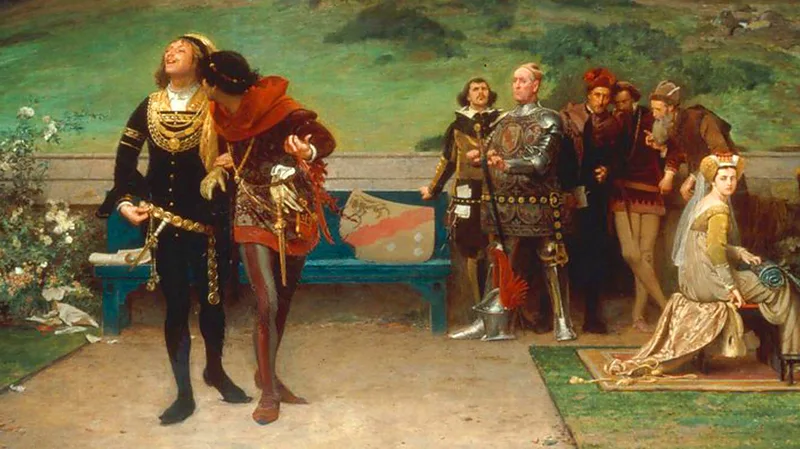
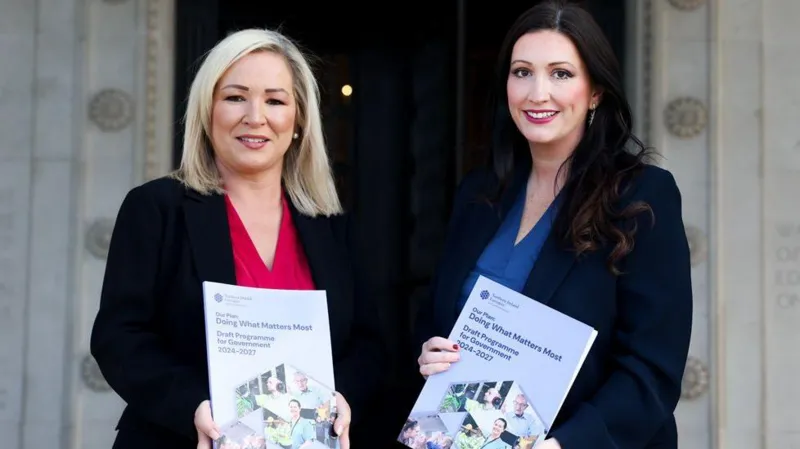
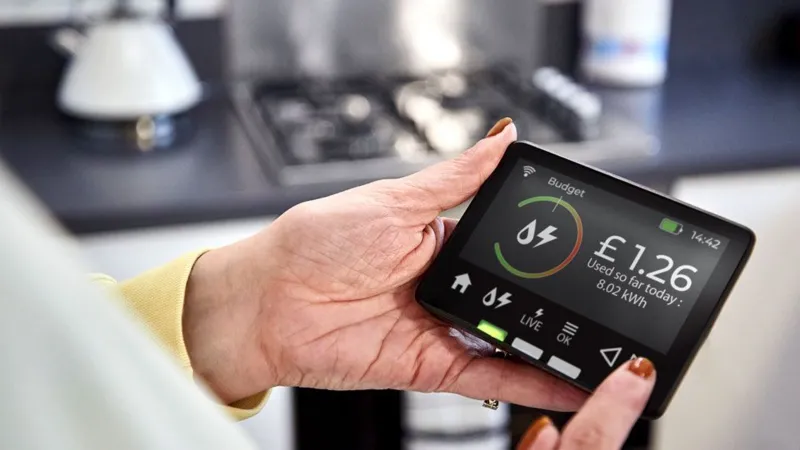
very important news im very happy